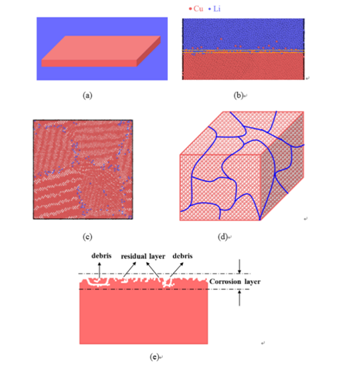
count: [2018-12-15] [Close]
Cu and liquid Li are respectively considered as structural material and potential plasma facing material in fusion devices. Studying the corrosion characteristics of Cu materials by liquid Li under extreme fusion conditions is important because the corrosion of Cu by liquid Li may affect simultaneous application of the two materials in fusion devices.
Recently, researchers in ASIPP have conducted the study on the corrosion behaviours and mechanism of liquid lithium (Li) on copper (Cu).
In the experiment, after exposure to liquid Li, entire surface of each specimen was seriously damaged. Visible grain boundary corrosion was observed on the surface of the specimens. Also, Cu debris entered the liquid Li from the corroded surface, resulting in considerable Cu loss from the specimen.
These results demonstrate a corrosion protection grade of Cu in liquid Li of 10, which means that Cu cannot withstand the corrosion of liquid Li under the given conditions. Scientists’ analysis reveals that the corrosion of Cu in liquid Li is induced via physical dissolution and intergranular corrosion, where intergranular corrosion is the dominant mechanism.
As a conclusion, direct contact between liquid Li and Cu should be avoided in fusion devices, and simultaneous application of the two materials requires special protection.
‘The research on specific protective measures is our next-step task,’ said ZUO Guizhong, associated professor of ASIPP. (ZUO Guizhong & MENG Xiancai report)

Graphs of the corrosion mechanisms for Li on Cu